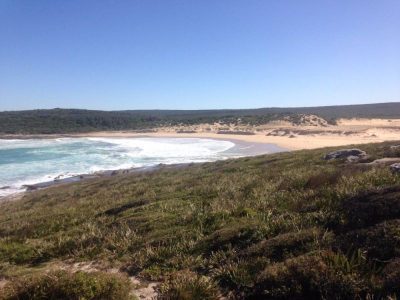CLIMATE CHANGE LITIGATION

Last week I attended three events that I found of interest to my work on coastal policy and science. The first was a workshop on East Coast Lows (ECLs) coordinated by the Office of Environment of Heritage in NSW. This brought together a range of climate specialists from OEH, Bureau of Meteorology and universities including Ian Goodwin from Macquarie University. One important outcome for me is the need to consider changing climate dynamics in driving different types of ECLs. Ian’s work on past occurrences of ECLs needs to be a factor in any evaluation of extreme event impacts on the east coast; climate change is NOT just about sea level rise.
The second event was the launch of the new Doug Foster wave flume at the Water Research Laboratory of UNSW. A joint ARC Discovery grant to UNSW and UQ provided funds to build this flume which can be used to test different hypotheses of sea level and wave type change on a sandy bed. I wish to thank Ian Turner of UNSW for the kind invitation to attend the launch of the flume by the NSW Minister for Planning (and Coasts), Rob Stokes. He gave a brilliant speech without notes touching on the ideas of Per Bruun along the way!
It is the third event that I want to comment on in this blog. The Environmental Defenders Office (EDO) NSW conducted a public forum on climate change litigation. There were two main speakers to a packed house: the Chief Judge of the Land and Environment Court of NSW, The Hon. Justice Brian Preston, and Marjan Minnesma, Director of the Urgenda Foundation in The Netherlands. Both speakers provided a fascinating array of information on how the law operates in different countries with respect to issues arising from the consideration, or lack of consideration, of climate change. I wish to thank the EDO for running this forum.
The Chief Judge offered a conspectus of cases in Australia and overseas that involved different types of legal action such as public nuisance, conspiracy, public trust, misrepresentation, administrative law, compliance, constitutional law, and international dispute resolution. As you can see it was wide ranging. He selected cases involving pollution, emission control, loss of land to the sea, matters deemed to be relevant or irrelevant of consideration in the court, adequacy or inadequacy of impact assessment, civil and merits enforcement, balancing of private and public interests, and questions of infringement of rights and transboundary disputes. I was pleased to see him refer to public trust cases; I have had a long interest in how the public trust doctrine could apply in Australia, but he did not go there.
Marjan Minnesma was a fascinating speaker; eloquent, clear, well-illustrated and with a clear message based on her successes in Holland. The Urgenda Foundation (check it out online) aims for a fast transition towards a sustainable society. It took the Dutch Government to court along with 900 co-plaintiffs, arguing that the government by NOT acting to prevent climate change was knowingly exposing its citizens to danger and is in breach of its legal obligation to protect its citizens. They won the case in the District Court of The Hague. The judgement was that the Government is required to take more effective action to reduce the countries share of global emissions. This is the first time a court has ordered a state to take precautions against climate change.
Urgenda is also pushing the Dutch to embrace renewable energy, 100% by 2030, arguing it would be both cleaner and cheaper and create 150000 new jobs and be a world leader in innovative technologies thus enhancing export income. They also showed how organisations like Urgenda can help citizens achieve a more sustainable society.
In all this there were messages for Australia: how informed citizens can take on the entrenched position of a government, and on how to use the legal system of a country when the system provides an opportunity to demonstrate that the government is breaching its duty to protect its people from harm. Marjan has presented the Dutch court’s findings to meetings in Brisbane, Sydney and Melbourne while here on holidays! I believe she made us think hard about our role as citizens within the Australian legal framework complicated as it is by our federal system and constitution.
I will leave it to our legal friends to see what is possible. In the meantime, I learnt more about the power of good legal argument in keeping pressure on governments whether it be in relation to climate change litigation or other environmental issues. The separation of powers is important! But she also stressed that individuals must play their part by adopting environmentally friendly technologies at home and in businesses and supporting NGOs.
– words by Prof. Bruce Thom


